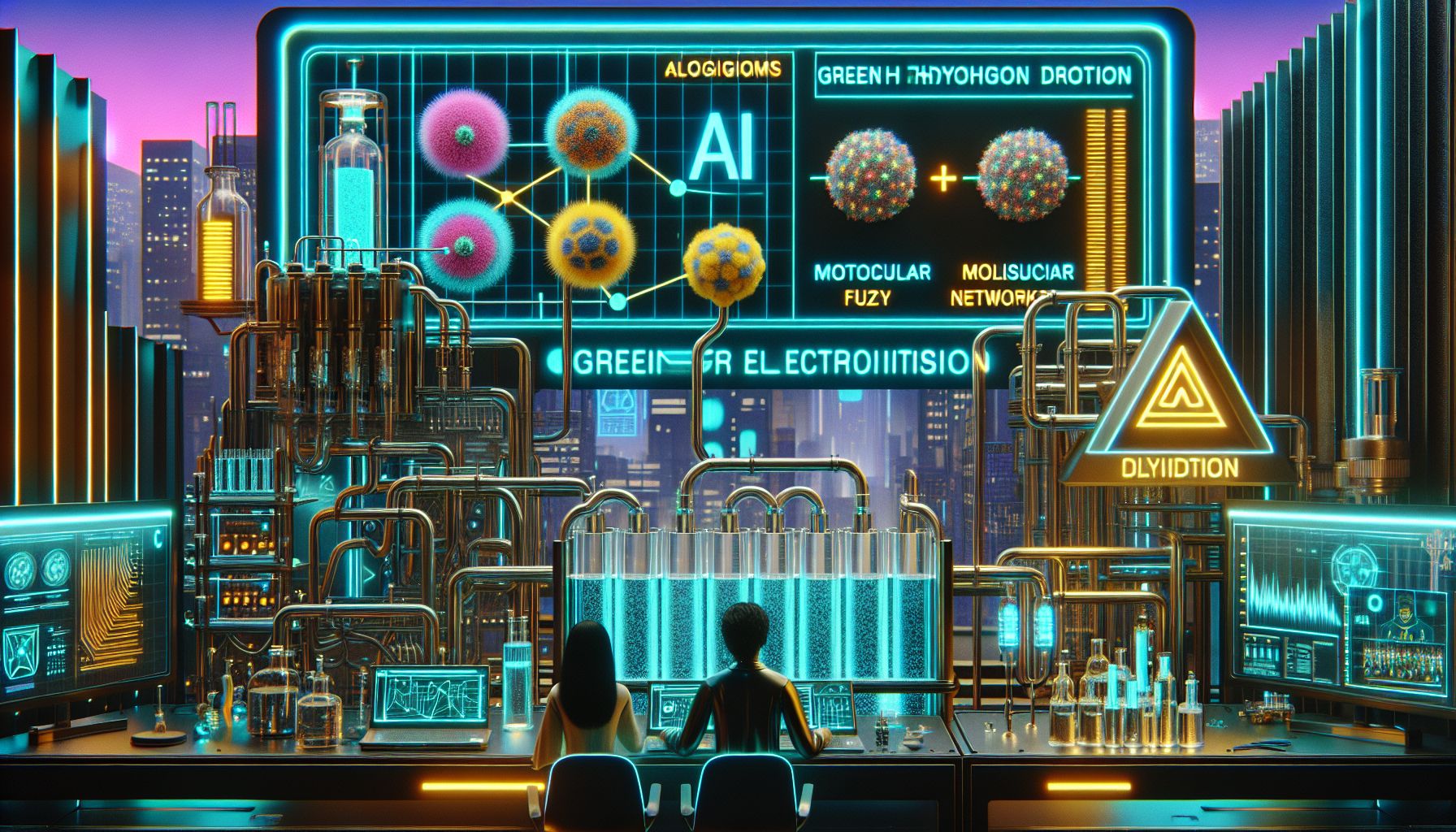Green Hydrogen's Hidden Champions: AI and Smart Tech Revolutionise Water Electrolysis

London, Friday, 22 November 2024.
In a groundbreaking development for 2024, artificial intelligence is transforming green hydrogen production. By combining Q-learning algorithms with molecular fuzzy networks, scientists have identified that electrolyser lifespan and production capacity are the key factors in making water electrolysis more efficient and cost-effective. This breakthrough comes as the US plans $26 billion in green hydrogen investments, potentially preventing 4.3 million metric tons of CO₂ emissions by 2025. The fusion of AI with hydrogen production isn’t just smart - it’s reshaping our clean energy future.
The AI-Driven Revolution
I find it fascinating how AI is stepping into the renewable energy sector with such flair. Using Q-learning algorithms, researchers are able to create balanced expert evaluation matrices, helping to pinpoint what really makes water electrolysis tick[1]. It’s like giving scientists a superpower to see through the fog of complexity, honing in on what truly matters—electrolyser lifespan and production capacity. These aren’t just buzzwords; they’re the backbone of efficient hydrogen production. With AI, the guesswork is minimized, letting us focus on tangible improvements.
Green Hydrogen in the US: A Colossal Undertaking
In the United States, the green hydrogen wave is gathering strength. With $26 billion earmarked for projects over the next five years, we’re looking at a potential game-changer[2]. These investments aren’t just about numbers—they’re about real-world impact. For instance, Plug Power, Inc. aims to churn out 500 tons of liquid green hydrogen daily by 2025, slashing CO₂ emissions significantly. Imagine the ripple effect this could have across industries, from transportation to energy storage. It’s a bold vision, one that paints a cleaner, more sustainable future.
Electrolysers: The Heart of Efficiency
The study’s findings are clear: the longevity and output of electrolysers are critical[1]. If these workhorses can last longer and produce more, the cost of hydrogen production drops, and sustainability rises. It’s a bit like tuning a car’s engine to perfection—every tweak can lead to better performance and lower fuel consumption. Extending the life of electrolysers not only boosts efficiency but also helps in cutting long-term costs, making green hydrogen a more viable option for various applications.
A New Era of Strategy and Optimisation
The integration of molecular fuzzy Bayesian networks and multi-objective particle swarm optimisation (MOPSO) in these studies is nothing short of revolutionary[1]. These methods allow for a precise ranking of strategies, ensuring that the best approaches are prioritised. It’s like having a GPS for decision-making, guiding investors and policymakers through the labyrinth of renewable energy investments. Such precision in strategy formulation could well be the key to unlocking the full potential of green hydrogen.
The Road Ahead: A Cleaner Tomorrow
As we look to the future, the role of AI and smart technologies in green hydrogen production becomes ever more crucial. With the US leading the charge in massive investments and cutting-edge research, the path to a decarbonised energy landscape seems more attainable than ever. By 2050, the goal is net-zero emissions, and green hydrogen is poised to play a pivotal role in achieving this vision[2]. It’s a journey of innovation, collaboration, and relentless pursuit of a cleaner, more sustainable planet.